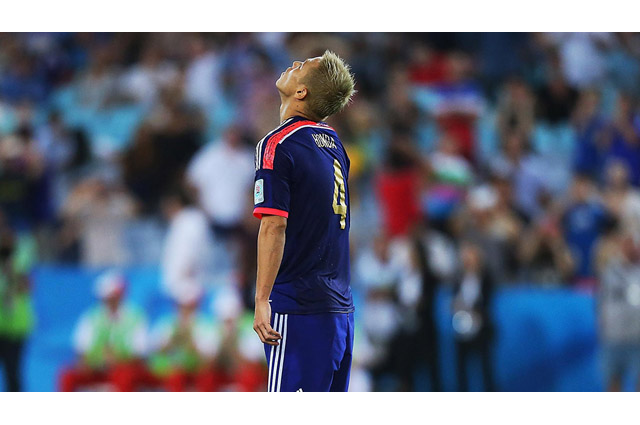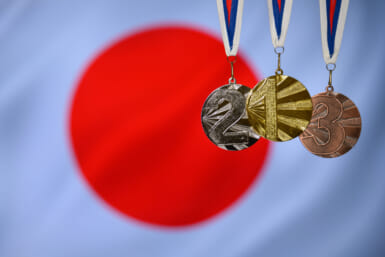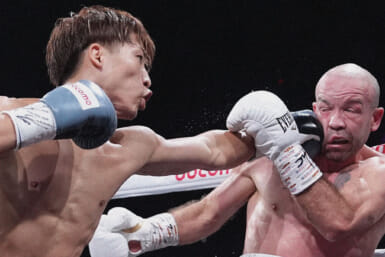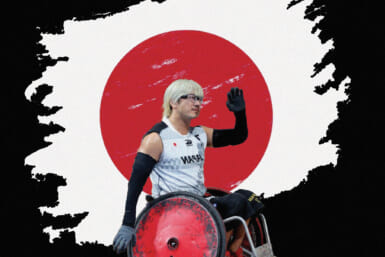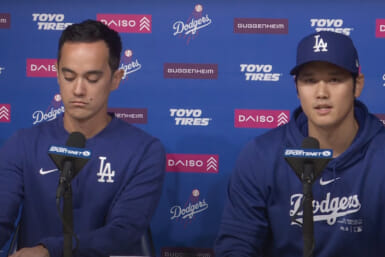After just 194 days in charge, Javier Aguirre received his marching orders from the JFA due to match-fixing allegations from his time in Spain as manager of Zaragoza. Getting knocked out at the quarter-finals stage of the Asian Cup by UAE can’t have helped his cause; however, the JFA were keen to stress that this had nothing to do with their decision.
By Matthew Hernon
“We have decided that we will cancel Aguirre’s contract,” said the head of JFA, Kuniya Daini. “First of all we’d like to convey to coach Aguirre that the reason for the cancellation is that we want to avoid any influence to the national team on their preparation for the World Cup and we want to avoid those risks. There is a possibility that he will be indicted and then a court case could begin….Aguirre had been doing very well in charge of the team, and if the case had not been accepted then there would have been no problem.”
Attention now turns to his successor. There are a number of Brazilian candidates being touted for the role, including former Kashima Antlers coach and three-time J-League winner Oswaldo de Oliveira; ex-Cerezo Osaka manager, Levir Culpi; former Inter and AC Milan coach, Leonardo; and the man who led Brazil to their fifth World Cup victory in 2002, Luiz Felipe Scolari (he was, of course, also in charge for that 7–1 defeat by Germany at the 2014 tournament—the most humiliating loss in the country’s history).
Other names reportedly in the frame are Dragan Stojković and current Japan U23 manager, Makoto Teguramori. Whoever takes the job faces a difficult task in turning around the side’s fortunes after what has been a fairly uninspiring few months. There were glimpses of something new and exciting during Aguirre’s tenure, but ultimately the same old problems came back to haunt the team.
Here’s a look at some of the positive (yes, there were some) and negative aspects of his short time in charge.
The Positives
A Stronger Defense—Masato Morishige and Maya Yoshida formed a fairly solid partnership at the back during Aguirre’s reign. They started every game together after Japan’s 4–0 defeat by Brazil, conceding just two goals in six games. Admittedly the level of opposition wasn’t that strong, but both played pretty well at the Asian Cup and neither player could be blamed for the side’s early exit.
Emergence of New Blood—A few young players emerged with credit from the Asian Cup. The one real plus to come out of the UAE game for Japan was the performance of Gaku Shibasaki, who looks like a player who could take over from Yasuhito Endo as Japan’s talisman in midfield. Yoshinori Muto showed glimpses of his undoubted talent during the tournament, while Gotoku Sakai also impressed at right-back.
A Bit More Variety to Japan’s Play—The team continued to overplay under Aguirre, but in his last few games they did show signs that suggested they were capable of mixing it up a little. They went long at times and were slightly more direct than what we have seen in the past. They had 35 shots on goal against UAE—just a few shots fewer than they managed for the whole of their World Cup campaign.
The Negatives
Same Old Problems—Despite all those shots they only managed to hit the back of the net once in the game, while UAE needed just three attempts to convert their one goal. It was the same old story for Japan who dominated possession, yet once again lacked that killer instinct in the final third. It would be unfair to blame Aguirre for that—it has been a major headache for the last few Samurai Blue managers. The next man in charge is likely to have similar problems.
Kagawa’s Slump in Form—The main culprit on the night against UAE was Shinji Kagawa. The Borussia Dortmund man fluffed his lines on numerous occasions and then missed the decisive spot kick in the shootout. Keisuke Honda’s penalty was worse, but he regularly delivers for Japan at crucial times. The same can’t be said of Kagawa—he’s a shadow of the player that tormented Bayern Munich in the German Cup final two and a half years ago, yet Aguirre persevered with him.
Too Few Changes—Aguirre fielded the same starting eleven for all four games at the Asian Cup. Just two days’ rest between the final group game and the quarter final took its toll on the players as Japan struggled early on against UAE. The Mexican coach gave young players like Muto and Shibasaki a chance, but didn’t trust them enough to start them in any games. Looking back these are decisions he probably regrets.
Image: Asian Cup

